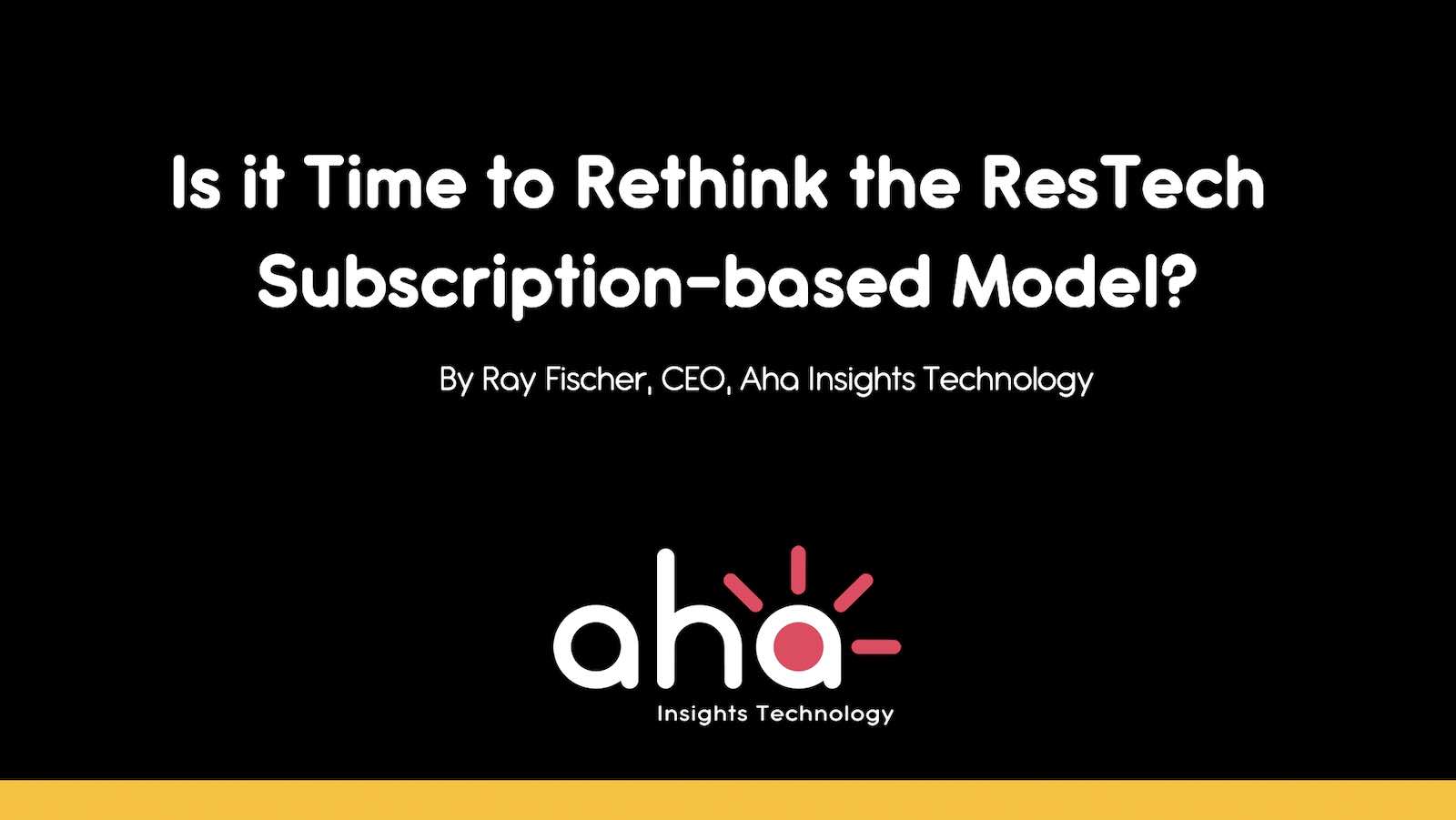Rethinking the ResTech Subscription-based Model for Consumer Online Market Research
I’m keeping my ear to the corporate ground and hearing rumblings of regret about the insight-based subscription models that some companies have committed to.
I think, in many cases, a more flexible, ad hoc pricing approach makes more sense for both corporate clients and ResTech suppliers. Let me tell you why.
I hear people saying that while the level of commitment of a subscription seemed right at the time, their needs have changed, and the subscription model doesn’t change with them. So, they are saddled with an expense that isn’t as relevant as it was when the relationship with their ResTech vendor started. Or, in some cases, what the vendor promised as a more holistic solution was really a one-trick pony, and they didn’t realize that until they started using the technology. To underscore this sentiment, a recent WSJ article (4/12/23) supports the notion that “consumers are rethinking their relationship to subscriptions – and so are companies.” My conversations with clients and prospects reinforce this groundswell.
I’ve intentionally used the word ‘commitment’ here because that’s what both sides are offering when entering into a subscription-based arrangement. And commitment is a tricky thing in a business environment that’s filled with uncertainty on a lot of levels. There are so many contextual unknowns when it comes to the economy, war, geopolitical conflicts, and the potential instability of institutions such as banks. All of these dynamics are out of any single person or business’s control. Within that context are the daily business challenges at hand for any brand or organization. And even those can change quickly and be beyond the control of brand and insight teams. So, the questions a brand might have for its consumers today may be a different set of questions tomorrow. Or they may need to ask a different consumer. Or interact with their consumer or customer in a new way. Or need a different way to analyze what they need to understand.
All of these issues and challenges illuminate the need for corporate brand and insight teams to be flexible. My hunch is the rumblings I’ve been hearing are their needs for flexibility butting up against the subscription commitments they’ve already made. I also understand that there’s an obvious benefit for ResTech vendors to sell their technology through a subscription model. Recurring revenue is a big deal in terms of valuation and financing for ResTech companies and is not always in the best interests of the client.
I also intentionally used the word ‘commitment’ because it might remind us that subscriptions are really a strategy – not a goal. Creating a mutually beneficial longer term relationship should be the goal. And, honestly, that’s what aha is interested in…achieving that goal of a mutually beneficial long-term relationship. This type of relationship builds in a promise of value for both parties, flexibility, compromise, and other characteristics that result in loyalty. So, sometimes subscription is the fit, but ad hoc approaches allow corporations to pick and choose technologies and services based on situational needs.
So maybe we should reframe the question I asked in the headline…
Should ResTech vendors rethink their model to provide corporate clients with more value, flexibility, and customization that is mutually beneficial to all parties?
If this question resonates with your thinking, let’s have a chat about a better way forward to meet your ever-changing challenges.




